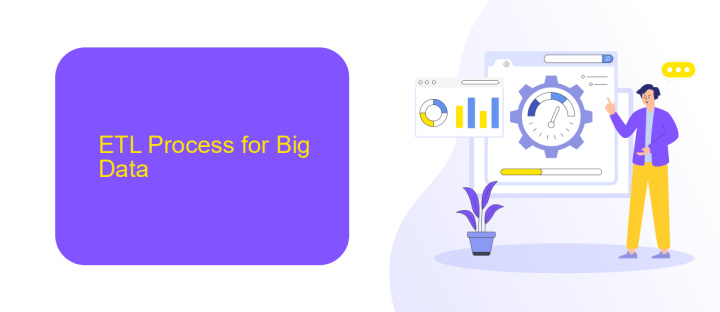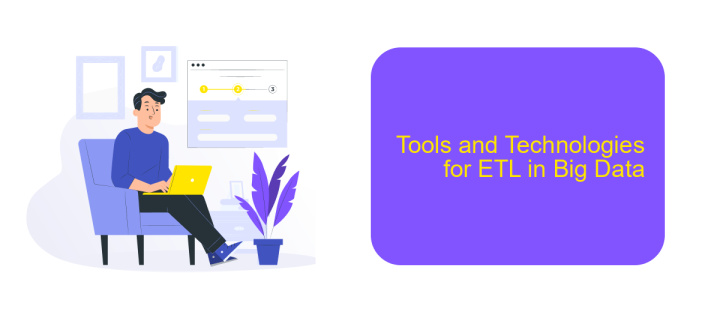ETL Big Data
Extract, Transform, Load (ETL) processes are pivotal in managing Big Data, ensuring that vast amounts of raw data are efficiently converted into meaningful insights. This article explores the intricacies of ETL in the context of Big Data, highlighting its significance, challenges, and best practices. Understanding ETL is essential for leveraging data-driven decision-making in today's data-centric world.
Introduction to ETL for Big Data
ETL (Extract, Transform, Load) is a critical process in managing Big Data. It involves extracting data from various sources, transforming it into a suitable format, and loading it into a database or data warehouse for analysis. This process ensures that data is clean, consistent, and ready for use in decision-making and analytics.
- Extract: Data is collected from diverse sources such as databases, APIs, and flat files.
- Transform: Data is cleaned, enriched, and converted into a uniform format.
- Load: Transformed data is loaded into a target system, like a data warehouse or data lake.
For seamless integration and automation of ETL processes, tools like ApiX-Drive can be invaluable. ApiX-Drive allows businesses to connect various data sources and automate the flow of data without needing extensive technical expertise. By streamlining the ETL process, organizations can focus more on analyzing data and deriving actionable insights, rather than getting bogged down by data management complexities.
ETL Process for Big Data

The ETL process for Big Data involves extracting vast amounts of data from various sources, transforming it into a structured format, and then loading it into a data warehouse or other storage solutions. This process is essential for organizations to make sense of their data and derive actionable insights. Given the volume, variety, and velocity of Big Data, traditional ETL tools may struggle to handle the complexity and scale. Modern ETL solutions leverage distributed computing and parallel processing to efficiently manage large datasets.
Integration services like ApiX-Drive can significantly streamline the ETL process for Big Data. ApiX-Drive allows seamless integration between different data sources and destinations, automating data extraction and loading. Its user-friendly interface and robust API support enable quick setup and real-time data synchronization, reducing the need for manual intervention. By utilizing such services, organizations can ensure data accuracy, improve operational efficiency, and focus on data analysis rather than data management.
Challenges of ETL in Big Data Environments

ETL (Extract, Transform, Load) processes in Big Data environments come with unique challenges due to the sheer volume, variety, and velocity of data. Managing these complexities requires robust strategies and tools to ensure efficient data processing and integration.
- Scalability: Handling large-scale data requires scalable architectures that can grow with the increasing data volume.
- Data Quality: Ensuring data accuracy and consistency is crucial, as poor data quality can lead to incorrect insights and decisions.
- Real-time Processing: Many Big Data applications demand real-time data processing, which can be difficult to achieve with traditional ETL tools.
- Integration: Integrating data from diverse sources can be challenging. Tools like ApiX-Drive can simplify this by automating the integration process.
- Security: Protecting sensitive data during ETL processes is essential to prevent data breaches and comply with regulations.
Addressing these challenges requires a combination of advanced technologies, strategic planning, and the right tools. Services like ApiX-Drive can play a significant role in streamlining data integration, ensuring that ETL processes are efficient and secure in Big Data environments.
Tools and Technologies for ETL in Big Data

Extract, Transform, Load (ETL) processes are crucial for managing Big Data, ensuring that data is collected from multiple sources, transformed into a suitable format, and loaded into a data warehouse or other storage solutions. These processes require robust tools and technologies to handle large volumes of data efficiently.
Several tools and technologies are available to facilitate ETL in Big Data environments. These tools can automate data extraction, transformation, and loading, making the process more efficient and less error-prone. They also offer features like data integration, real-time processing, and scalability to handle growing data needs.
- Apache Hadoop: A framework for distributed storage and processing of large data sets.
- Apache Spark: An open-source analytics engine for large-scale data processing.
- Talend: An open-source ETL tool that provides data integration and management solutions.
- Informatica: A data integration tool that supports ETL and data quality management.
- ApiX-Drive: A service that simplifies the integration of various applications and automates data workflows.
Choosing the right ETL tool depends on your specific requirements, such as data volume, processing speed, and integration capabilities. Tools like ApiX-Drive can be particularly useful for automating integrations and managing data workflows, ensuring seamless data movement across different systems.


Best Practices for ETL in Big Data
When implementing ETL processes in Big Data environments, it is crucial to ensure data quality and integrity. Start by validating and cleansing data at the extraction phase to avoid propagating errors. Utilize robust data validation frameworks and automate the cleansing process to maintain consistency. Additionally, consider the scalability of your ETL pipeline. Big Data volumes can grow rapidly, so leverage distributed processing frameworks like Apache Spark to handle large datasets efficiently.
Another best practice is to optimize data transformations for performance. Minimize the complexity of transformation logic and use efficient algorithms to reduce processing time. Furthermore, ensure seamless integration between various data sources and destinations. Tools like ApiX-Drive can facilitate this by offering pre-built connectors and automation features, streamlining the integration process. Lastly, monitor and log ETL processes continuously to detect and resolve issues promptly, ensuring the reliability and accuracy of your data pipeline.
FAQ
What is ETL in the context of Big Data?
Why is ETL important for Big Data analytics?
What are some common challenges in Big Data ETL processes?
How can ETL processes be automated for Big Data?
What is the role of data transformation in the ETL process?
Apix-Drive is a universal tool that will quickly streamline any workflow, freeing you from routine and possible financial losses. Try ApiX-Drive in action and see how useful it is for you personally. In the meantime, when you are setting up connections between systems, think about where you are investing your free time, because now you will have much more of it.

